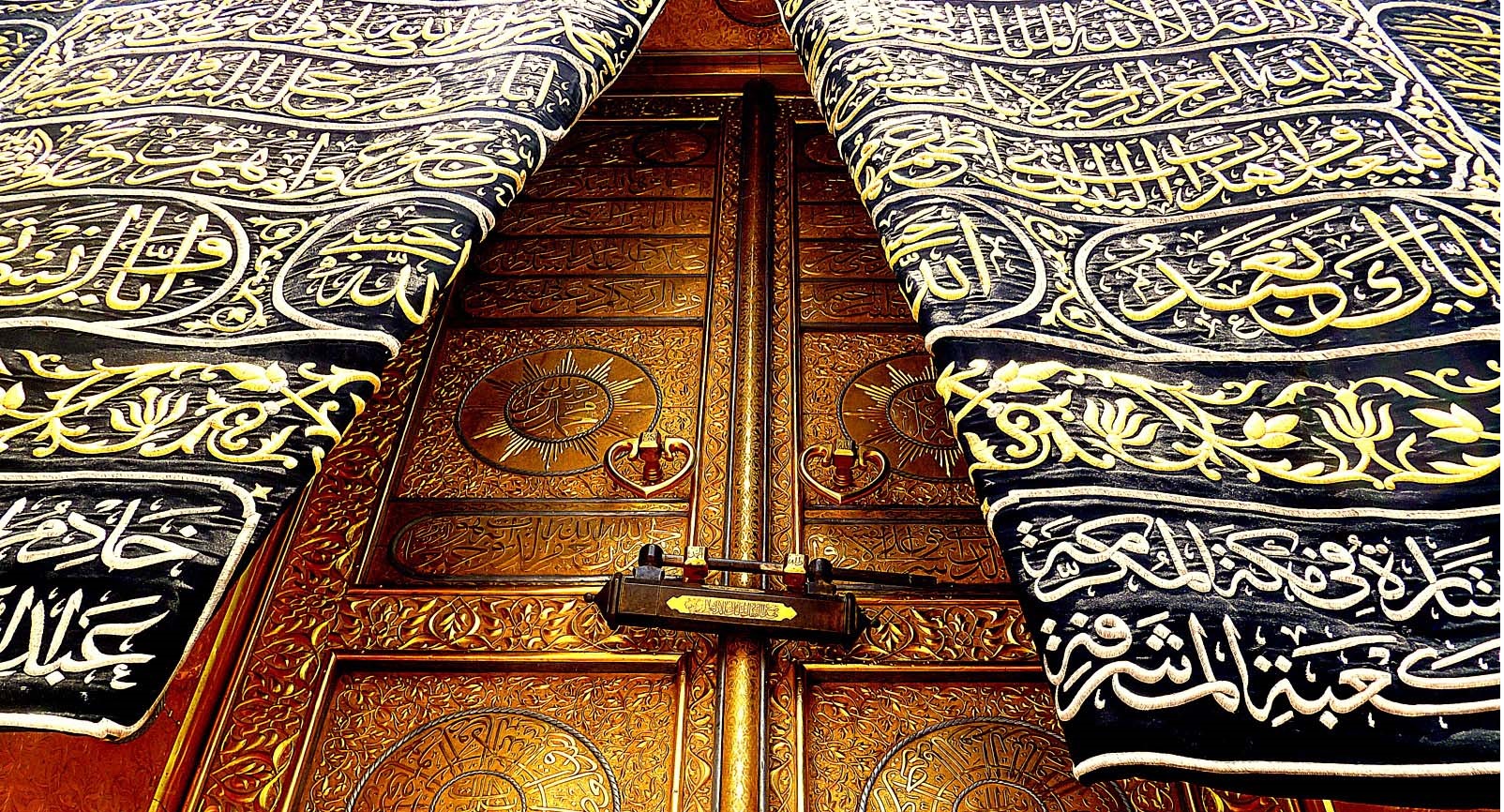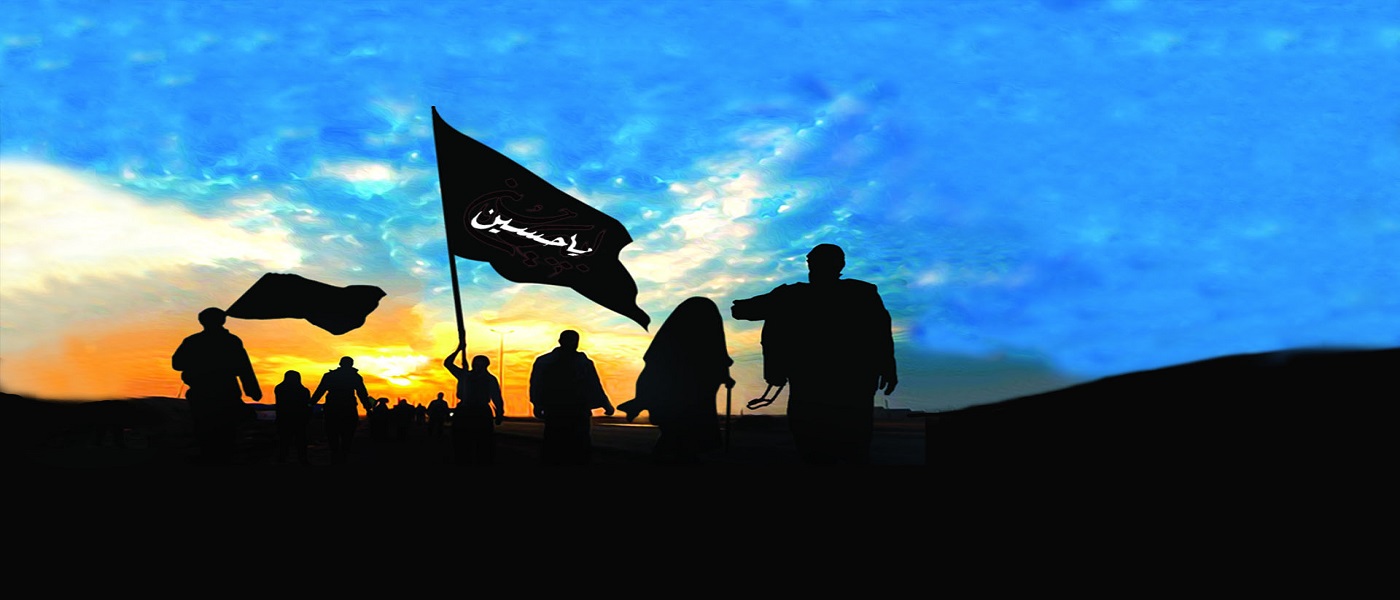

How was the First Imam, Imam Ali (AS) Born?
There is no doubt among us that after our dear Prophet Mohammad (PBUH&HP), our twelve Imams (AS) are the most important figures of our religion. On that account, today we want to get to know more about our first imam and the first male convert of the religion birth matter and conditions.
The faithless say, ‘You have not been sent [by Allah].’ Say, ‘Allah suffices as a witness between me and you, and he who possesses the knowledge of the Book’
The Holy Quran (13:43)
And among the people is he who sells his soul seeking the pleasure of Allah, and Allah is most kind to [His] servants
The Holy Quran (2:207)
If the two of you repent to Allah... for your hearts have certainly swerved, and if you back each other against him, then [know that] Allah is indeed his guardian, and his supporters are Gabriel, the righteous among the faithful and, thereafter, the angels...
The Holy Quran (66:4)
If we seek the true meaning of these three verses above of our holy book, they all seek Ali (AS) as their primary target and guide us to some aspects of his life. our dear imam has been implicitly described by The Quran many times that shows us His great importance in our religion.
No one can fully describe the contributions of Imam Ali (AS) to his religion and the people and if anyone dares to do so, he can merely show a drop of the sea. That said we are about to speak about the first question that may occur to our mind: how was our first Imam born?
Birth of the Son of Kaaba, Ali b. Abi Talib
Thirty years after the “year of the elephant” (*) occurrence, in the 13th of Rajab (March 8), when Prophet Mohammad (PBUH&HP) was 30 years old, 10 years before our dear The Prophet (PBUH&HP) received the first revelation from the angel Gabriel and 23 years before the great migration of Muslims from Mecca to Medina.
At this time, our dear imam's pregnant mother (Fatima Daughter of Asad) was praying at Kaaba. She felt an immense amount of delivery pain that she fled to Kaaba from that pain. Suddenly the wall of Kaaba has moved apart and given shelter to her for 3 whole days. After these days, she came out of Kaaba with her dear son, our first imam, Ali b. Abi Talib (AS). Imam’s delivery was a great honor that happened to no one And after yet; walls moving apart, mother’s presence in the holy site of Islam, and the unique birth in Kaaba were all the signs of the greatness of son of Kaaba.
Fatima Daughter of Asad was the second woman that converted to Islam (after Prophet’s wife, Khadija” SA”). She had the honor of taking care of the Prophet (PBUH&HP) from the age of eight until his youth in her (Abu-Talib) house. Their relation was as much close that Prophet (PBUH&HP) called she “mother” So we can see the early strings of Prophet (PBUH&HP) calling Imam Ali (AS) his brother.

Shia point of view about Imam Ali (AS) birth:
1.Sheikh Mofid (died in 413th AH): our first imam, Ali b. Abi Talib (AS) was born on Friday the 13th of Rajab and thirty years after the year of the elephant in Mecca. No one ever has been born in Kaaba before and after him. His delivery was the great honor that God granted him to show his dignity over other men of his age.
2. Allamah Al-Hilli (died in 726th AH): Imam Ali (PBUH) was born on Friday the 13th of Rajab and thirty years after the occurrence of the year of the elephant. No one before and after him, was born in Kaaba at that time, The Prophet (PBUH&HP) was thirty years old.
Sunni point of view about Imam Ali (AS) birth:
Many of the Sunni scholars Believe that Imam’s birth routine was in Kaaba and some of them even think this matter exclusively was only for the Imam.
We will name some of them briefly and look at their point of view:
1. Al-Hakim al-Nishapuri (died in 658th lunar year): a lot of Consecutive narrations have pointed that Fatima bt. Asad have delivered Ali b. Abi Talib in the Kaaba.
2. Sibt ibn al-Jawzi Hanafi (died in 654th lunar year): It has been narrated that when Fatima bt. Asad was pregnant and doing tawaf around the Kaaba, she sensed an immense delivery pain that she fled to Kaaba from the pain; when suddenly Kaaba’s door got opened to her so she went into the Kaaba and gave birth to his child.
Poetry about imam Ali (AS) birth:
Syed Ismail Himayari (who died in 173th AH) was one of the greatest poets of Arabic literature. He wrote a poem about this unique birth:
His mother gave birth to him in God’s safe site; God’s house and masque was his birthplace
He was pure and noble; her mother, her child, and her birthplace too
In one of the darkest nights, he appeared with lunar purity
No child other than Amine’s child is honored like him
References:
- Kitab al-Kafi (first Volume – page 452)
- Kitab al-Irshad (first Volume – page 5)
- I'lam al-Wara bi A'lam al-Huda (first Volume – page 306)
- Bihar al-Anwar (35th Volume – page 182)
- Description of Nahj al-Balagha (first Volume – page 6)
- Manaqib Ale Abi Talib (third Volume – page 307)
- Rawżat al-Vaeezin (page 81)
---------------------------------------
* In that year, Kaaba invaded by faithless king Abraha and his great elephant army and ironically saved by Allah himself with an army of birds carrying small stones by their pecks that penetrate the elephant's body and skull and all of them got killed, and Kaaba was saved.
Share This Article

What is the Philosophy behind the Arbaeen Walk?
Muslims commemorate the fortieth day after the martyrdom of Imam Hussain (AS) and his companions, called Arbaeen, meaning the fortieth day in Arabic. They all gather around the city of Karbala and Imam Hussain’s (AS) shrine, mourning and lamenting the unfair and cruel war between his comrades and those of Yazid Ibn Muawiyah, which led into the death of those pure men and the bondage of their families.
This commemoration happens every year around the city of Karbala. Muslims begin to walk to Karbala from other towns. They gather together in groups to pray, and especially to mourn the martyrdom of Imam Hussain (AS).
This walk is a hard one. It takes at least three days and lots of energy and time. So, why do Muslims take that? What is the philosophy behind it?
To answer our questions, first, let’s have a review of the history behind this walk and then move to the other aspects of this commemoration.
1. What is the Arbaeen Walk?
The history of Arbaeen walk goes back to the first visitors of Imam Hussain (AS) after his death. On the day of Arbaeen, forty days after the tragic martyrdom of Imam Hussain (AS), Imam’s (AS) son, sister and the remaining members of his family and that of the other martyrs came back to Karbala to lament the death of their dear ones besides their graves.
Their next visitor was Jabir Ibn Abdullah Ansari on the year 61 AH. Visiting Imam Hussain’s (AS) shrine was a tradition in Shiite culture until a short period after Morteza Anasari’s became the religious reference (Marja’) of Shiite Muslims. It was then lessened for some years and then revived. Some other religious references (Marja’) kept this tradition alive among their followers, until the government of Saddam Hussain, which banned all religious Shiite traditions to be performed publically [1].
The tradition was revived after the fall of Saddam, and it is still to be continued.
2. Why on Foot?
Visiting the holy shrines and going on pilgrimages on foot is not something new or belonging to our age. It’s got a long history, and Adam did the first pilgrimage on his visit to Mecca [2]. It isn’t a tradition just among Muslims either. It is performed in other faiths and religions, too. For instance, Caesar made a vow to his God to go on a pilgrimage to the Dome of Rocks if he won the battle against the Empire of Persepolis (Iran). He performed his vow after his victory [3].
Pilgrimages are highly admired, and their act is seen as a way of getting closer to Allah by Imam Sadiq (AS). Visiting the holy shrines of the twelve Imams (AS) is even more praised, especially the sacred shrine of Imam Hussain (AS). Of course, it’s not these shrines themselves that are of value and importance, but the people who have been buried there. Thus, when one makes a pilgrimage toward these shrines, he/she finds the chance to think more about these great personalities who won Allah’s satisfaction and praise and were Muslims in the real sense of the word. So, in every step that a pilgrimage takes toward Imams' (AS) shrines, especially that of Imam Hussain (AS), he/she is getting closer to a source of spiritual blessing, bringing him/her thousands of virtues and wiping away thousands of vices from his/her mind and soul.
3. What is the Philosophy behind the Arbaeen Walk?
The Arbaeen pilgrimage is not merely a long walk. Instead, it is a kind of movement in which despite being in publics, pilgrims have their own private relationship with Allah and Imam Hussain (AS), which finds a new form of divine immaterial dependence and conformance. Thinking about the goals and the history behind the martyrdom of Imam Hussain (AS), the injustice and cruelty imposed on his family and the devotions of his faithful followers brings about many personal and social growth and improvements.
Meeting other Muslims, exchanging ideas, and making friendships with Muslims of the other countries is another social outcome of this pilgrimage. One finds out that they are not alone in their faith, and have friends all over the world. They may have differences, but they have one thing in common: Belief in Imam Hussain (AS) and his right cause.
The last and the most crucial point to mention this great gathering is it's a kind of preparation for the grand reappearance of Imam Mahdi (AS), the awaited savior among Muslims. The Arbaeen pilgrimage is to make the minds and souls ready for this great event. It is said that when Imam Mahdi (AS) reappears, he introduces himself as the son of Hussain (AS) [6], whose fame has reached many people through the Arbaeen Pilgrimage; one of the most significant religious gathering around the world, with the estimated number of 40,000,000 people participating in it, whose news is broadcasted all over the world [5].
References
- "The background of Arba'een rally/The importance of Najaf-Karbala rally from the scholar's viewpoint." Fars News. Archived from the original on 16 November 2015. Retrieved 4 October 2015.
- Hor Ameli, Muhammad Bin Hussain Vasayel-o-Shia, Vol 11, p 132
- Sobhani, Jafar The Light of Eternity p. 696
- Kamel-o-Ziyarat: Pp 183, 184 and 185
- Philipson, Alice (19 January 2015). "The ten largest gatherings in human history." The Telegraph. Archived from the original on 6 October 2015. Retrieved 3 October 2015.
- Khademi Shirazi, Mohammad Yad’e Mahdi P16, P132
Read More

What Are My Responsibilities towards Others? Part2
The responsibilities of a Muslim towards family, relatives and other Muslims in general, were already reviewed in an article. Here one's responsibility in Islam towards neighbors, friends, and enemies are discussed.
The Responsibility in Islam Towards Neighbors
Doing good to neighbors is highly emphasized in Islamic teachings: “Worship Allah and … be good to … the near neighbor and the distant neighbor” (4:36). Prophet Muhammad (PBUH&HP) advised Imam Ali (AS) to honor the neighbors, even if they are disbelievers (Kafir) [1]. Imam Ali (AS) said that Prophet Muhammad (PBUH) used to invite repeatedly to doing good to neighbors such that we thought he (PBUH) was going to consider an inheritance for them [2].
The rights of neighbors on one another as an important responsibility in Islam, are:
To honor them in their presence, and to help and care about them when they are absent [3]. It includes visiting neighbors when they are sick, to assist their funeral, and to offer them your tasty meals that smell good [4];
To keep their secrets. It means that not to look for their faults and errors. And, if ever you become aware of some of their faults, do not reveal them but try to conceal their deficiencies [3];
Do not leave neighbors alone in difficulties [3]; e.g., help them in case of financial needs [4];
Do not be jealous of them if God grants them some blessings [3];
Ignore their errors to yourself and forget about them. If ever they do wrong to you unintentionally, be patient and in peace with them [3];
Do not let others talk behind their back and reveal the deficiencies of your neighbors here and there [3].
Giving priority to the neighbors. It is narrated from Imam Hassan (AS) that Lady Fatima al-Zahra (AS) used to pray firstly for the neighbors and then for members of the family [5].
According to Imam Sadiq (AS), having good behavior and interaction with neighbors increases the provision (Rizq) [6]. Prophet Muhammad (PBUH) advised to respect neighbors as much as one should respect his\her mother [6] and he (PBUH) said: “God bless whoever does good to his\her neighbors” [7]. On the contrary, whoever sleeps peacefully at night while one of the his\her neighbors is hungry, God will deprive him of his blessings on the judgment day [8]. The same will happen to whoever annoys his\her neighbors [1].
Take your time and think about these attitudes towards the neighbors. Life will be surely much agreeable and peaceful if we improve our social interactions with our neighbors within the Islamic framework.
The Rights of Friends and Companions
Having a good companion is known as a blessing; on the contrary, a bad one is like a disaster [9]. Friends and companions have certain rights one over the other including:
To interact with them with generosity as much as you can, otherwise, be fair to them [3];
To be smiling when you meet them and to receive them modestly [3];
To respect them as they respect you [3];
To be the first one who does good to the other one, otherwise, try to compensate properly [3];
To help them in difficulties and whenever they are in need, as Imam Ali (AS) advised to [10];
To hold them in great affection according to Imam Ali (AS) [11];
Not to reveal their deficiencies and mistakes;
To encourage them in obedience to God and to prevent them from committing sins [3];
To be honest with them and not to cheat [3]; e.g., nor to talk behind their back neither to reveal their deficiencies and to guard their secrets;
To be trustworthy whenever they rely on you [3].
The Responsibility in Islam Towards the Enemies
The enemy here means a person whom one is in conflict with. There are some recommendations in Islamic resources on how to treat enemies and what is one's responsibility in Islam towards them:
To be fair with them [12]. According to Imam Sadiq (AS), a real believer (Mu'min) does not oppress his\her enemies [13];
To testify in favor of the enemies if they are right [14] even if your testimony is against yourself [3];
To keep the promises you made to your enemies [15];
To forgive and tolerate them, if possible [3]. According to Imam Ali (AS), there is a virtue in forgiving enemies [16];
To talk nicely and shortly with whoever you have complained of [3], to argue with them in a way that is best (16:125), and not to ignore their rights if ever you are wrong [3].
References:
- M. Shoueiri “Jami’ al-Akhbar”, p. 84.
- Shaykh al-Kulayni, “Al-Kafi”, vol. 7, p. 51.
- Imam Zayn al-'Abidin (AS), “Treatise On Rights (Risalat al-Huquq)”.
- responsibility towards others
- Shaykh al-Saduq, "Ilal Al-Shara'i", p. 181
- Shaykh al-Kulayni, “Al-Kafi”, vol. 2, p. 666.
- Shaykh al-Saduq, “Al-Amali”, p. 288.
- Shaykh al-Kulayni, “Al-Kafi”, vol. 2, p. 668.
- “Ghurar al-Hikam wa Durar al-Kalim”, T. 4719-4720.
- “Nahj al Balaqa”, p. 494.
- “Ghurar al-Hikam wa Durar al-Kalim”, T. 9665.
- Ibn Shu’bah, “Tuhaf al-Uqul”, p. 88.
- Shaykh al-Kulayni, “Al-Kafi”, vol. 1, p. 47.
- Shaykh al-Saduq, “Sifat al-Shia”, p. 24.
- “Nahj al Balaqa”, p. 53.
- “Ghurar al-Hikam wa Durar al-Kalim”, p. 435.
Read More

